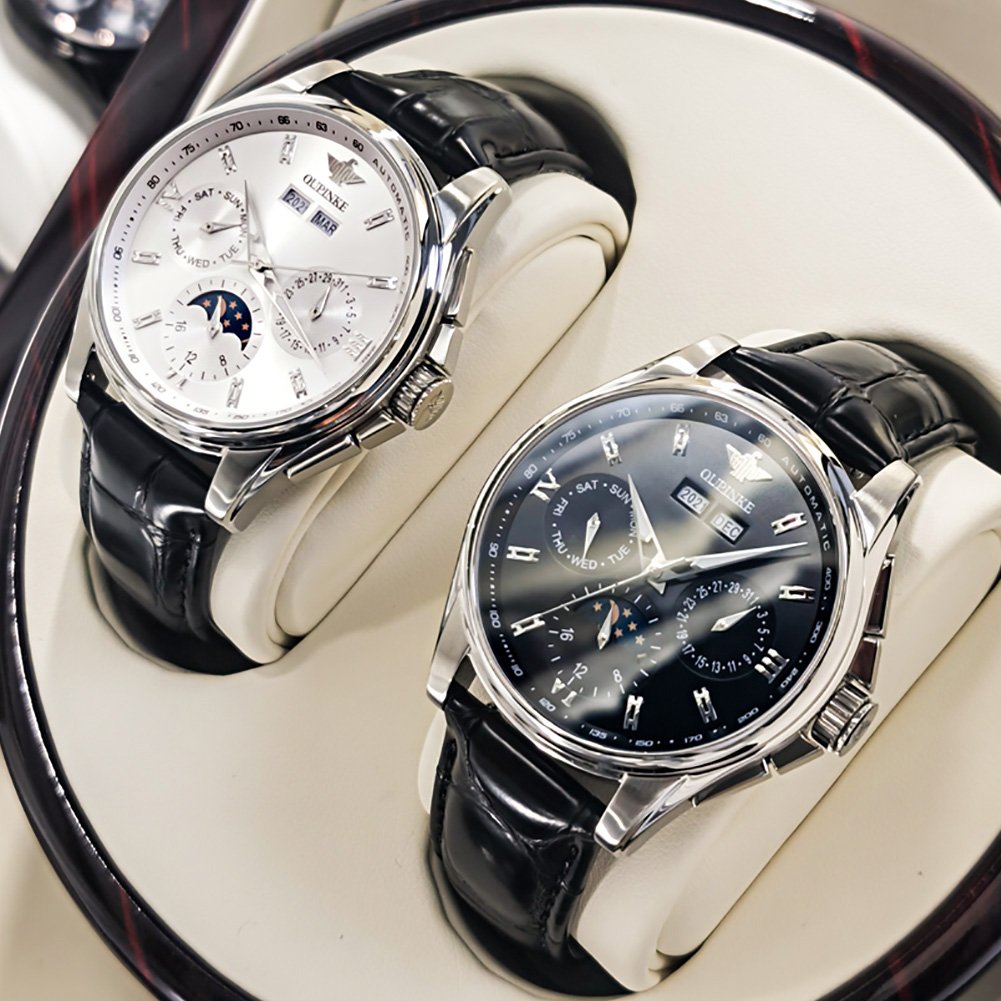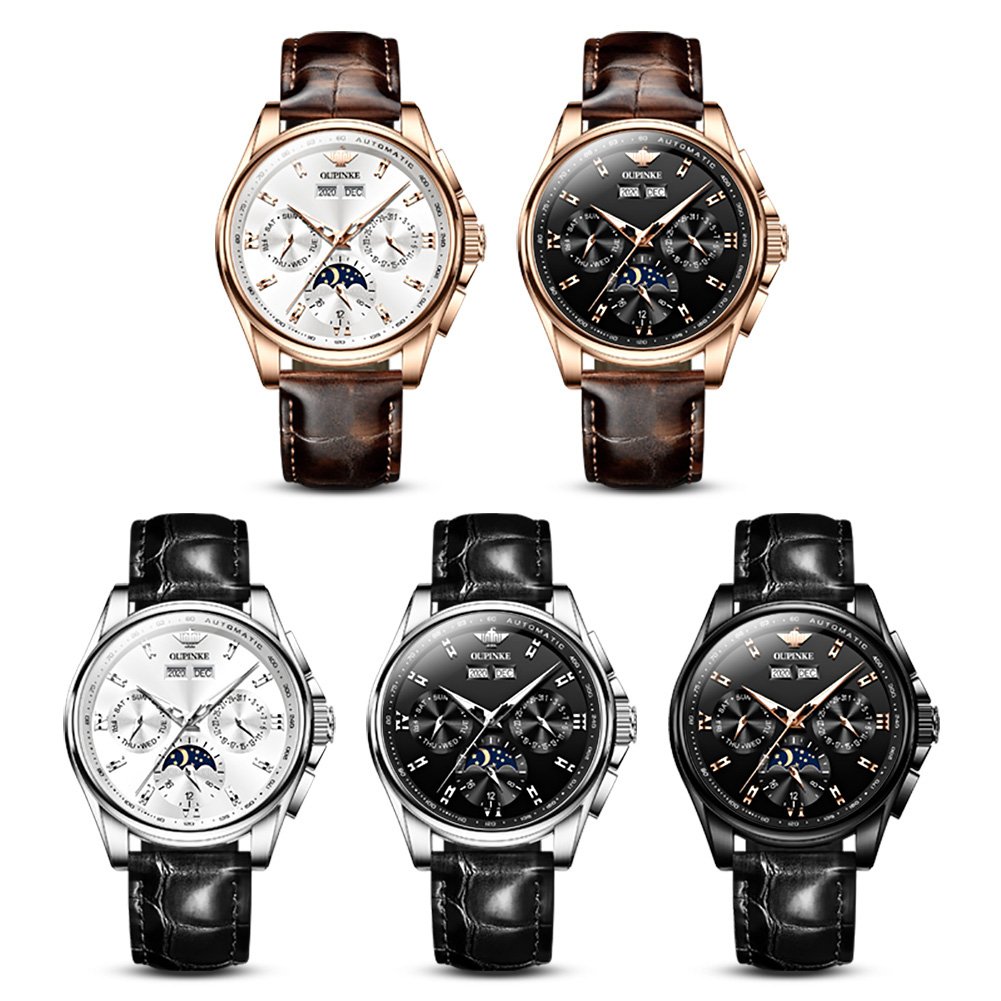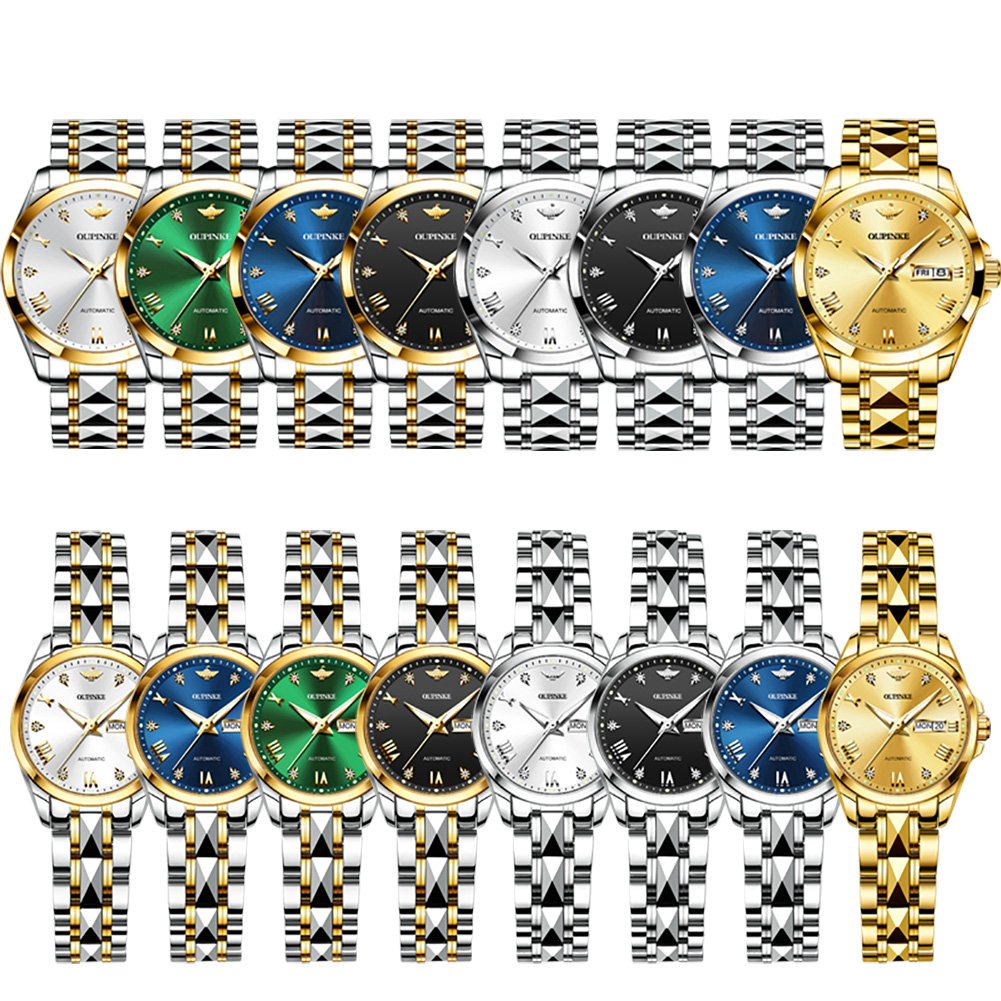
- Home
- Blog
- Choosing Between Quartz and Automatic Watches: Making the Right Decision

Choosing Between Quartz and Automatic Watches: Making the Right Decision
Discover the key differences between quartz and automatic watches. Learn which is better suited for your preferences and lifestyle.
Wristwatches are more than mere timekeeping devices; they represent a blend of craftsmanship, style, and personal taste. When choosing between a quartz or automatic watch, understanding its unique characteristics and benefits is essential to selecting the ideal timepiece that suits your needs and preferences.
Comparison of Movements
- Quartz Watches: Quartz watches use a battery-powered quartz crystal to regulate time. They are celebrated for their exceptional accuracy, typically losing or gaining only a few seconds monthly. Maintenance is minimal, primarily requiring a battery change approximately every 1-5 years, depending on usage.
- Automatic Watches: Automatic watches, also known as mechanical watches, harness the natural motion of the wearer’s arm to keep them wound. They feature intricate mechanical movements admired for their craftsmanship and heritage. Automatic watches do not rely on batteries but require regular wearing or manual winding to maintain accurate timekeeping.
Benefits of Automatic Watches
- Luxury Appeal: Automatic watches are often regarded as luxury items and status symbols, appreciated for their mechanical complexity and historical significance.
- Smooth Second Hand: The hallmark feature of automatic watches is the soft, sweeping motion of the second hand, which adds a touch of elegance and sophistication.
- No Battery Dependency: Unlike quartz watches, automatic watches do not require battery changes, eliminating the hassle and cost associated with battery replacements.
- Craftsmanship: Renowned watchmakers like Rolex, Patek Philippe, and Omega specialize in creating exquisite automatic movements, showcasing precision engineering and meticulous craftsmanship.
Drawbacks of Automatic Watches
- Cost: Automatic watches are more expensive than quartz watches due to their intricate mechanical components and craftsmanship.
- Less Accuracy: While modern automatic watches are highly accurate, they may not match the precision of quartz watches in terms of timekeeping.
- Regular Maintenance: They necessitate periodic servicing every few years to ensure optimal performance and longevity, which adds to their overall cost of ownership.
- Delicate Nature: Automatic watches are more fragile and susceptible to damage from shocks or rough handling, requiring careful maintenance and storage.
Benefits of Quartz Watches
- Affordability: Quartz watches are generally more affordable than their automatic counterparts, making them accessible to a broader range of consumers.
- Accuracy: They are celebrated for their exceptional timekeeping precision, typically losing or gaining only a few seconds per month.
- Low Maintenance: Besides replacing the battery every few years, quartz watches require minimal upkeep and are robust enough for daily wear.
- Durability: Quartz watches are lighter and less fragile than automatic watches, making them suitable for active lifestyles and everyday use.
Drawbacks of Quartz Watches
- Ticking Motion: The second hand of quartz watches moves in a ticking motion, which may lack the smooth sweep characteristic of automatic watches.
- Battery Dependence: Regular battery replacements are necessary, typically every 1-5 years, depending on the specific watch and usage.
Choosing Between Quartz and Automatic Watches
Ultimately, the decision between quartz and automatic watches often boils down to personal preference and lifestyle considerations:
- Quartz Watches: Recommended for individuals who prioritize affordability, accuracy, and minimal maintenance. They are ideal for those seeking a practical and reliable timekeeping solution without regular upkeep.
- Automatic Watches: Appeal to watch enthusiasts who appreciate the artistry, tradition, and luxury associated with mechanical craftsmanship. They are favored for their intricate movements, status symbol appeal, and the smooth, sweeping motion of their second hands.
Conclusion
In conclusion, quartz and automatic watches have distinct advantages catering to different tastes and lifestyles. Understanding the differences between these two movements empowers consumers to make informed decisions based on their preferences, budget constraints, and desired functionality. Whether you opt for the precision of quartz or the mechanical allure of automatic, your choice reflects not just a timekeeping preference but also a reflection of your style and appreciation for horological craftsmanship.
Latest Post


Choosing Between Quartz and Automatic Watches: Making the Right Decision

Unveiling the Technology and Advantages of Quartz Timepieces in the Watch Industry

The Ultimate Guide to Luxury Sports Watches
Transforming Timepieces into Fashion Statements: Discovering Thomas Sabo Watches
Watch Strap: How to Find Your Perfect Fit
Newsletter
Follow us to get the newest knowledge of watches from a Chinese supplier’s perspective.


